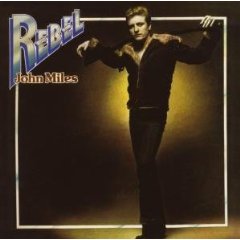History
When Miles signed to Decca, they introduced him to producer Alan Parsons in the summer of 1975 (Miles would later sing on several tracks on several albums of the Alan Parsons Project). The first song they recorded was "Highfly", which was released as a single, eventually reaching #17 in the U.K., #68 on the U.S. Billboard Hot 100 and #74 in Canada. [1]
Because of the success of the single, plans were made to record a full album; this recording took place in November–December 1975 at Abbey Road Studios. [2] The song "Music" was released, became an instant hit (reaching number 3 in the UK, number 88 in the United States) and is one of his most memorable songs. [3] The album reached the lower level of the U.S. Billboard 200 albums chart, peaking at #171.
The album title was based on the album cover, on which he posed with a big gun on his shoulders, reminiscent of James Dean, who is considered a rebel. The pose with the gun is also identical to the one Martin Sheen does in the 1973 Terrence Malick film Badlands . [3]
According to Miles, "Music" was written in half an hour and was originally meant to be a basis for other songs, but because of its distinctive character, it was developed as a complete song. [3]
This page is based on this
Wikipedia article Text is available under the
CC BY-SA 4.0 license; additional terms may apply.
Images, videos and audio are available under their respective licenses.
